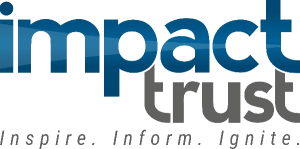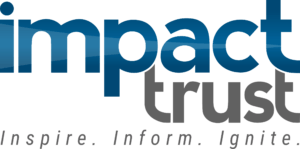
Resilience: A dynamic state of being whose time has come
Report on activities and organisational achievements in 2019: From the Executive Director, R2R

I am honoured to be able to write this first annual review of activities for the period ended December 2019. Though I wish it were under better circumstances, we are more mindful than ever that our work building the pathways to resilient futures and sustainable livelihoods is an idea whose time
has arrived with force. One only has to look at the use of the term over time (since the industrial revolution) to see the growing importance of this concept. It mirrors the famous graphs of the deep acceleration and surely speaks to the growing awareness we have of what is happening to our environment – whether natural or social.
Since becoming an independent social enterprise on June 1st, 2019, both Routes to Resilience and I have had quite a ride, at speed, over bumps, up hills and down hills! I can only assume this first period has been a test of our own resilience and agility and I have to applaud my team for their adaptability and skill in using the real world opportunities to engage learners and help them understand and deeply connect with their own power and potential to be resilient even in the most difficult of circumstances.
I was delighted to direct the development of our new branding and website and to showcase our expanded programme and workshop offerings. These cater not only for young adults and educators but now also for young professionals and emerging managers based on the skill set, expertise and experience that I bring to the growing Routes to Resilience team.
The focus in the first part of 2019 was on the delivery and testing of our Sygnature Award. Born out of Routes to Resilience’s original schools programme developed and piloted in 2016, the Sygnature Programme provides youth with an extramural offering so that they can engage with principles and issues of sustainability even whilst not having this necessarily integrated into classroom content. The programme was developed in collaboration with the Impact Trust and the Cambridge Institute for Sustainable Leadership in South Africa (CISL-SA) to inform, inspire and ignite young people to develop the literacies, skills, mindset and competencies they need to act as catalysts for resilient futures and drive sustainable change.
The Award promotes environmental literacy and mastery of the action strategies and skills needed for taking effective action to drive sustainable change. It consists of three interdependent modules that together develop knowledge and skills (Sygnature Skills), enable mastery of strategic intelligence and competence in action (Sygnature Service) and provide immersive encounters with nature to witness and explore principles in practice (Sygnature Experience).
An assessed, certificated programme, the Sygnature components have been designed to speak to the requirements of other awards like the Duke of Edinburgh or President’s Award at silver level, providing students with an alternative opportunity to gaining relevant and critical knowledge and skills for a changing world, whilst also completing programmes offered as extramural activities at many schools. We hope to deepen our relationship with these programmes in 2020.
The pilot Sygnature programme in 2019 reached 55 Go for Gold learners from 17 schools across the Cape Flats and Greater Cape Metropole. Without glossing over the challenges and lessons learned about what worked well and what didn’t work so well, this first pilot was a resounding success. Feedback from learners demonstrates that this was, for them, an entirely unique and powerful introduction to the issues of sustainability, personal and community resilience and leadership. Go for Gold were so pleased with the programme that they contracted us to run it again for two more cohorts.
Learners have been instrumental in driving the ongoing iterations and refinements of the programme, most especially informing how time and school constraints might seek flexibility in the sessional periods, for example having 1.5 hours instead of three, or having a full day instead of four weeks). We have worked with this feedback to enable bespoke design and format of the programme depending on the cohort engaged. In the long term we believe this will also be useful for the educators we support, allowing them to take the programme content and adapt its delivery according to the time available with their learners.
I am pleased to say that an immediate opportunity to pilot an alternative format of the programme emerged in September 2019 when Afrika Tikkun Services asked us to deliver a 12-day intensive ‘immersion’ format engaging post-matric youth in their Career Development and Work Readiness programme. These 20 young people completed the Sygnature Skills programme with enthusiasm and their feedback attests to the benefit they feel it has given to them in preparedness for proactive responses and contribution to the future. Many have taken the ideas they developed for service out into their communities and ongoing engagement with the group has demonstrated the power of the programme and its deep internalisation for many.
The particular joy of working with young professionals and emerging managers – or those about to enter the world of work – speaks to my experience and skill set in organisational development, sustainable teams and resilient leadership in the world of work. I am delighted that it has enabled us to expand our programmes at Routes to Resilience to formalise a work readiness programme.
The Resilient Futures programme has been designed to incorporate the key principles of systems-thinking, sustainability and complexity theory that underpins all Routes to Resilience programmes. It expands on how these both influence, and call forth core professional development capacities that will help transform learners into competent, well-rounded, confident professionals who are able to secure decent job opportunities and succeed in achieving purposeful sustainable livelihoods responsive to the rapidly changing world of work. Their participation not only creates opportunities to achieve sustainability for themselves, but often supporting and uplifting their families and communities as well.
Resilient Futures has been created with a related ‘Train the Trainer’ programme to develop the capacity of educators or trainers to manage the large part of independent delivery of the content in the future. We believe this programme is also of significant benefit for educators seeking to develop a deeper understanding of the content so that they can better incorporate and integrate this learning into their classroom practice. We feel it is more vital than ever that teachers, learners and emerging professionals and leaders have the opportunity to develop their understanding and resilience responsiveness at the earliest opportunity and look forward to expanding this work in 2020.
The 2020 year is already a full one: we have grown from two programme cohorts in 2019 to six already underway in both the UK and South Africa. Whilst we didn’t anticipate the road to expansion in 2020 would be necessarily smoother, the ‘stop in your tracks’ brakes applied by Covid-19 has demanded that we change with immediate effect, and I am pleased to say that we have already begun to move to online learning and developing content in partnership with LightSail Education and CG Labs’ Virtubox. We look forward to our first virtual pilot in April 2020. This is in keeping with our aim of finding experiential and interactive ways to deliver programmes to youth irrespective of where they might be, whilst determined to reduce our carbon footprint and increase global connectivity. We also believe that his shift in our approach prefaces what will be a quantum shift in education delivery. We look forward to responding to the needs and demands of the ecosystem.
Although the route we are taking may have dramatically changed during this time, our destination – resilience – is now more relevant and urgent than ever. I want to thank hugely the Impact Trust board and team, most especially Tamzin, Mike and Retha, but all of whom have been committed and generous with their time, engagement and support of the programme. Huge, huge thanks must go to Elspeth Donovan from CISL, SA who has been unwavering in her dedication and support of both the programme and my own development as I step into this role, Geordie, who stepped into the role as Interim Head of South Africa to lead our programme efforts throughout 2019 and 2020, and Alexei and Inge who, as faculty facilitators have been indispensable in their critical support and holding of the learners. Thank you all. It is a pleasure and a privilege to work with such a diverse and socially and environmentally conscious team.
Ann de Passos,
Executive Director, Routes to Resilience

